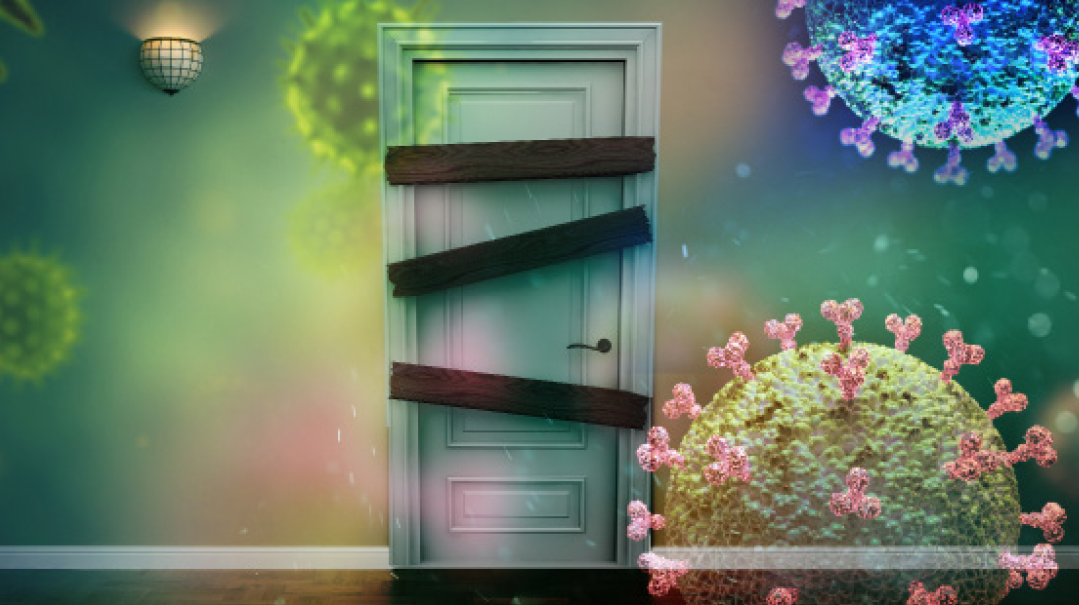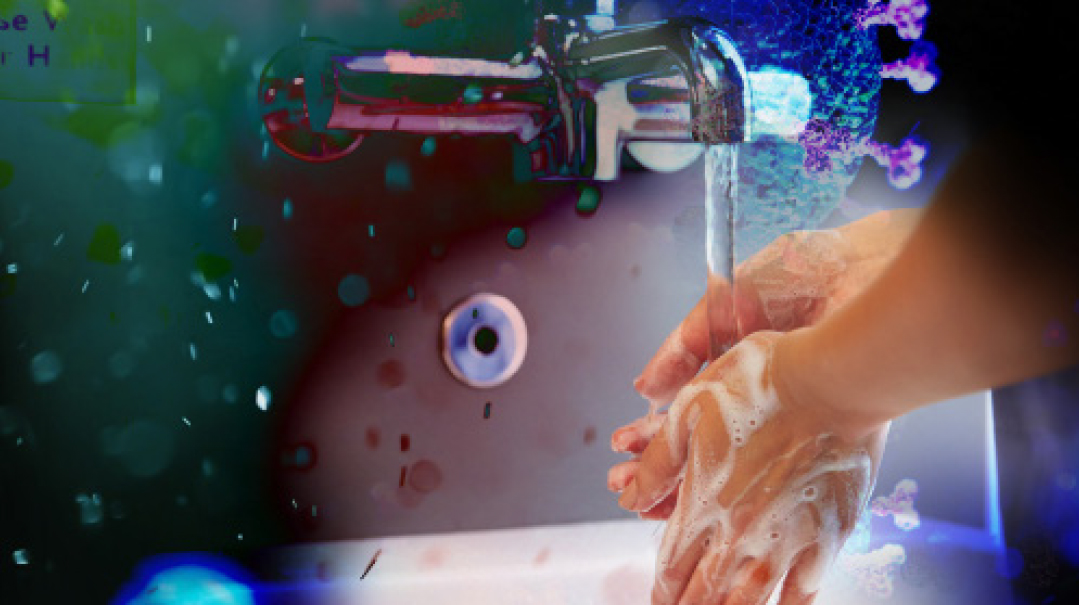Life on Pause
| April 1, 2020
As told to Chassia Thau by Rachel Katz
It was a regular Motzaei Shabbos. In the midst of cleaning the Shabbos mess, we got a phone call. We were suddenly informed that my husband needed to go into quarantine because he’d been exposed to a COVID-19 patient on Purim.
We stood there, so shocked we started laughing. We simply didn’t see it coming.
My husband had come down with flu-like symptoms over Shabbos, but I hadn’t thought anything of it. Magen David Adom would come test him within 72 hours; until then, we had to jump into action.
Finish cleaning up the house, pack the bedroom with everything essential, and then some. I took out all my belongings — from now on he was going to be a prisoner in his own room, for 14 days. And me? I took on the role of single mom.
When the kids woke up and discovered their father was locked up in his room, one daughter broke down, another gathered all the courage she could possibly muster.
Sunday morning went okay. Exhausting, but okay. We took a walk outside, got fresh air and decided to make the best of the situation. I was on my A game.
It pained me to hear my husband coughing on the other side of the door. I couldn’t help, couldn’t be there for him, couldn’t relieve any of his pain. I wondered what the test results would be, but deep down I already knew.
In addition to the constant worry over his health, my other fear was taking care of the kids alone for who knows how long. It could be weeks and weeks. When my brain went there, the tunnel seemed endless.
Tuesday arrived, and brought the rain with it. Rain, a coughing quarantined husband and four very active little girls in our small apartment. We experienced a lot of screaming and laughing. Crafts and messes. Yelling and crying. This was the life of “the-family-with-a-father-in-quarantine.” This is my life now, I kept telling myself.
Just when I thought it couldn’t get any worse, we got the phone call that confirmed it.
My husband received a number — coronovirus patient #365.
That put me and all the girls in lockdown, too. No more fresh air, no more milk and bread runs. With my husband a confirmed patient, I didn’t know when I’d see him again.
My brain bounced everywhere, staggering highs and lows.
He’ll be okay, coupled with, What will be?
How long will it last? went hand in hand with, We are in it together.
How on earth will I keep everyone busy and happy? merged together with, We can do this!
The phone rang off the hook that night, as if I was making a simchah or something, friends and relatives asking me questions I had no strength to answer.
At 1:30 a.m. I broke down. The emotions drowned me as I tried to come up for air. So many challenges, so much going on, so much on my shoulders. So tired. Exhaustion reached a new level as it tested me every step of the way.
Tears. So many tears.
They have a way of cleaning our mind and soul. Tears can heal.
Wednesday morning dawned and we summoned the tears again. We started the day with a crying session. We sat on the couch and sobbed. Being brave can make a person break; being real gives us the strength to carry on. Now it was time to give room for the brokenness. We cried for the friends we missed, for our father behind his door. We cried because it’s so hard to be good, and listen, and play nicely, and be patient.
Then we settled into a new routine of arts and crafts, dancing, eating, singing, coloring on faces, cleaning, repeat. It was hard.
By the time I lit candles on Friday, I was a wreck. I cried like I had never cried before. Hard as I tried, the house was a mess, the kids wanted their father. Shabbos brings peace? I didn’t feel it, not one bit.
And there was something else. I couldn’t smell the fire when I struck the match. I couldn’t enjoy the challah, the soup tasted like hot water. My morning coffee was awful. Hummus was just salty cream. Was I depressed?
I didn’t know then that losing one’s sense of taste and smell is a symptom of corona.
Motzaei Shabbos I felt a little better when I realized it had been a week — we’d done a full week! Although Shabbos was hard beyond comprehension, tomorrow would be a new day. And the days would turn into weeks, and week by week we’d get through it. And just then, on that high note, I got the call.
I’m patient #827.
I’m not terribly sick but I don’t know if I’ll ever smell cut grass again. I don’t know if food will ever be the same. Will I be able to savor the scent of fresh linen? Will I be able to taste my Shabbos food to see if it needs more seasoning?
My husband could come out of his room, and we can all go through quarantine together — there’s a silver lining. But… until when? Until both of us come back with negative tests. It can take three to five weeks.
Now, we learn to dance a tango, not solo. A difficult dance, though a dance nonetheless.
Why have we been chosen? I’ll never know.
I do know that I can choose to see the good. See small acts of kindness along the way and embrace them.
As the days pass, and my worldview is limited to just what I see beyond my window, it becomes clear.
Clear beyond any doubt that G-d has turned off the noise, so we can hear the music within.
Not everyone is given an opportunity to stop life and start living. An opportunity to start living with our family, ourselves, our souls.
(Originally featured in Family First, Issue 687)
Oops! We could not locate your form.









